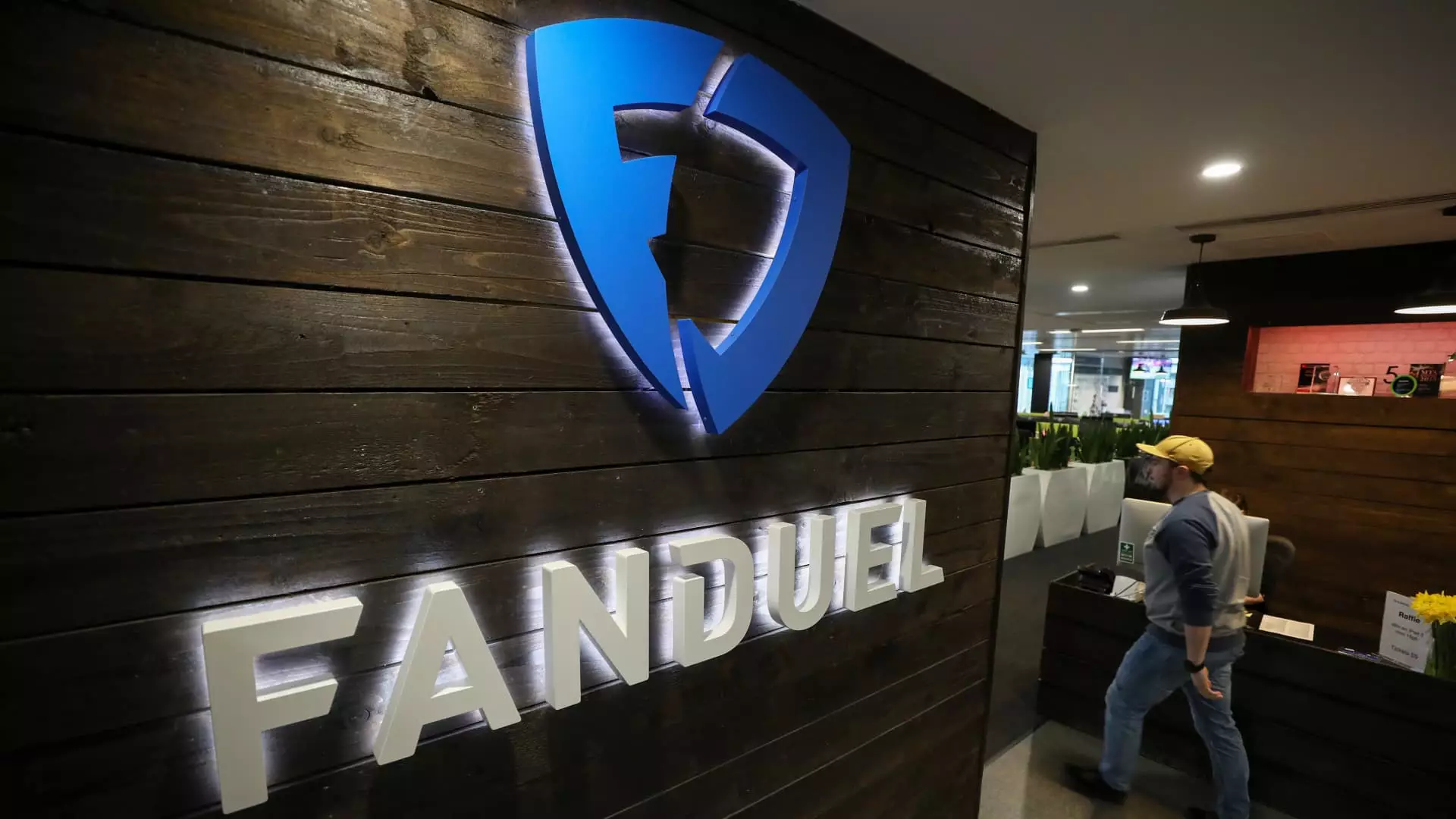In recent news, Flutter reported outstanding second-quarter earnings, impressing investors and causing shares to surge by approximately 8% on Wednesday. The success was attributed to the growth in revenue of FanDuel, particularly in states where sports betting and online gaming are already well established. However, the key announcement that caught everyone’s attention was FanDuel’s decision not to impose a surcharge to offset an Illinois tax hike. This move stood in stark contrast to rival DraftKings, which initially planned to introduce a surcharge in states with the highest taxes on sports betting, leading to a 5% drop in their stock price in extended trading.
The imposition of higher taxes on gambling companies, as seen in states like Illinois, New York, Pennsylvania, and Vermont, has forced operators to reconsider their pricing strategies. DraftKings’ initial decision to introduce a tax surcharge on customers was met with significant backlash, ultimately resulting in the company retracting the plan. Flutter’s announcement to forgo the surcharge and focus on more tailored marketing and promotions could potentially give them a competitive advantage in the market. CEO Peter Jackson believes that smaller players may be compelled to raise their prices, allowing FanDuel to gain a larger market share.
Despite the challenges posed by tax hikes and pricing strategies, FanDuel maintains a substantial 47% market share in the U.S. sports betting industry and a 25% share in the iGaming sector. The competition is particularly fierce in the iGaming segment, where the potential for profits and growth far exceeds that of sports betting. Operators reported a significant revenue of $677 million from iGaming in just seven states where it’s legal, surpassing the $1 billion revenue generated from sports betting across 38 states and Washington, D.C. The future growth potential of iGaming is estimated to reach $48 billion annually if all states allowing land-based casinos or sports betting also permit iGaming.
Despite concerns about a potential recession, the gambling industry appears to be thriving, with consumers showing a willingness to spend on online gaming. A CNBC/Generation Lab poll revealed that a significant percentage of individuals aged 18 to 34 are spending substantial amounts on online gambling each month. This trend is further supported by the performance of the sports betting exchange-traded fund (BETZ), which experienced a 2% increase on Wednesday, marking its best day since January.
The impact of tax hikes on sports betting companies in the U.S. highlights the complex interplay between regulatory policies, consumer behavior, and market dynamics. While companies like DraftKings initially sought to offset tax burdens through surcharges, the backlash from consumers forced a reconsideration of these strategies. The decision by FanDuel to forego surcharges and focus on alternative methods to mitigate the impact of high state taxes underscores the importance of customer feedback and adaptability in the highly competitive gambling industry. As the industry continues to evolve, companies will need to navigate changing regulatory landscapes and consumer preferences to maintain their market share and drive sustainable growth.

